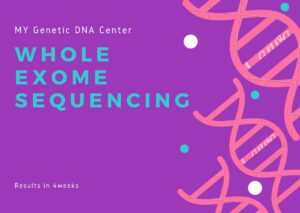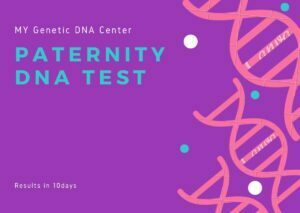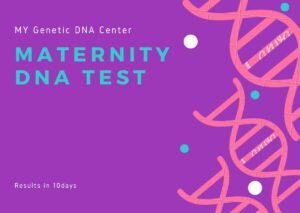CYSTIC FIBROSIS MUTATION DETECTION:
Cystic Fibrosis Mutation Detection is a genetic test that identifies mutations in the CFTR gene, which regulates the movement of salt and water in and out of cells, maintaining normal fluid balance in the lungs, pancreas, and other organs. Mutations in this gene disrupt the CFTR protein function, leading to thick, sticky mucus accumulation that causes respiratory infections, digestive problems, and other complications associated with cystic fibrosis. By analyzing a blood or buccal swab sample, doctors can confirm a diagnosis, identify carriers, and detect genetic risks in families.
The test provides critical insights for early intervention, allowing healthcare providers to implement therapies, nutritional support, and respiratory care that improve quality of life. Families benefit from understanding inheritance patterns, recurrence risks, and reproductive options, empowering them to make informed decisions. Cystic Fibrosis Mutation Detection serves as a reliable tool for personalized healthcare, guiding treatment planning, genetic counseling, and preventive strategies to manage the disease effectively from an early stage.
What is Cystic Fibrosis Mutation Detection?
Cystic Fibrosis Mutation Detection is a genetic test that identifies mutations in the CFTR gene, which is responsible for producing a protein that regulates salt and water movement in and out of cells. Mutations in the CFTR gene disrupt this process, leading to thick, sticky mucus accumulation in the lungs, pancreas, and other organs, causing respiratory and digestive problems. By detecting these mutations, the test helps doctors diagnose cystic fibrosis, assess carrier status in parents, and plan early interventions and treatment strategies for affected individuals.
Who should undergo this test?
Cystic Fibrosis Mutation Detection helps families make informed reproductive decisions by identifying carrier status for CFTR gene mutations. When both partners carry mutations, doctors calculate the likelihood of passing cystic fibrosis to their children and explain the associated risks. This information allows couples to explore options such as prenatal testing, preimplantation genetic diagnosis, or assisted reproductive technologies to reduce the chance of having an affected child.
Understanding carrier status also enables extended family members to assess their own genetic risk and plan accordingly. By providing clear insights into inheritance patterns and genetic probabilities, the test empowers families to approach family planning with confidence, make proactive healthcare decisions, and prepare for early interventions if a child inherits the condition.
How does the test help in family planning?
The test provides couples with information about their carrier status for CFTR gene mutations. If both partners carry mutations, doctors can explain the likelihood of having a child affected by cystic fibrosis. This knowledge enables families to explore options like prenatal testing, preimplantation genetic diagnosis, or assisted reproductive technologies. Understanding carrier status empowers families to make informed decisions, reduce the risk of having an affected child, and prepare for potential medical needs. Cystic Fibrosis Mutation Detection helps families make informed decisions about having children by identifying carriers of CFTR gene mutations.
When both partners carry mutations, doctors explain the probability of passing cystic fibrosis to their children, allowing families to understand the associated genetic risks. This information enables couples to explore options such as prenatal testing, preimplantation genetic diagnosis, or assisted reproductive technologies to reduce the likelihood of having an affected child. Extended family members can also benefit from knowing their carrier status, which helps them plan pregnancies responsibly. By providing clear insights into inheritance patterns and recurrence risks, the test empowers families to approach family planning with confidence, prepare for potential medical needs, and make proactive decisions that optimize the health and well-being of future children.
How is the sample collected for this test?
Doctors collect a small blood sample using a sterile needle and syringe, usually from a vein in the arm.
Patients may provide a buccal swab by gently rubbing the inside of their cheek with a sterile swab to obtain DNA.
Blood collection may cause a brief sting or minor soreness at the puncture site.
Buccal swabs remain completely painless and are suitable for infants, children, and adults.
Doctors label and store the sample carefully to ensure proper identification and accurate analysis.
Patients should follow any specific instructions provided by the laboratory or healthcare provider regarding fasting or medication use.
Proper handling, storage, and timely submission of the sample help ensure reliable test results.
Is the test painful or risky?
Cystic Fibrosis Mutation Detection involves minimal risk and causes little to no discomfort. Blood draws may produce a short-lived sting or slight soreness, and buccal swabs remain entirely painless. The test does not involve surgery, radiation, or invasive procedures, making it safe for adults, children, and newborns. Proper sample handling ensures patient safety while providing accurate genetic analysis. Cystic Fibrosis Mutation Detection carries minimal risk and causes little to no discomfort, as it relies on either a blood sample or a buccal swab.
Blood collection may produce a brief sting or minor soreness at the puncture site, but it does not involve surgery, anesthesia, or invasive procedures. Buccal swabs remain entirely painless, making the test suitable for individuals of all ages, including newborns and children. The procedure does not expose patients to radiation or other health hazards, and following proper sample collection and handling instructions ensures safety and accuracy. By adhering to these guidelines, patients complete the test safely, providing doctors with reliable genetic information to guide diagnosis, treatment planning, and family planning decisions without introducing significant health risks.
How long does it take to get the results?
Laboratories typically provide results within one to three weeks, depending on the testing method and sample volume. Doctors interpret results alongside clinical findings and family history to provide an accurate assessment. Timely results allow families to make informed decisions about early interventions, treatment options, and reproductive planning.
What do abnormal results indicate?
Abnormal results in Cystic Fibrosis Mutation Detection indicate the presence of one or more mutations in the CFTR gene that can disrupt the production or function of the CFTR protein, which regulates salt and water movement in cells. Detecting two pathogenic mutations in an individual confirms a diagnosis of cystic fibrosis, explaining respiratory issues, digestive difficulties, or other related symptoms. Identifying a single mutation reveals carrier status, which does not cause disease in the individual but may pose a risk to future children if the other parent also carries a mutation.
Doctors use abnormal results to assess disease severity, guide treatment strategies such as respiratory therapy, nutritional support, or medications, and provide genetic counseling for families. These findings also inform family planning decisions, helping parents understand inheritance risks and take proactive measures to manage or reduce the likelihood of passing the condition to offspring.
Do patients need genetic counseling before or after the test?
Can medications or health conditions affect the test results?
Medications and health conditions do not affect Cystic Fibrosis Mutation Detection results because the test analyzes DNA, which remains stable regardless of external factors. Drugs, illnesses, or lifestyle changes cannot alter the CFTR gene sequence, ensuring that the test accurately identifies mutations in any individual. Patients do not need to stop taking medications or modify their health routines before testing.
However, providing doctors with complete information about current medications, medical history, and any relevant family history helps in interpreting the results within the broader context of the patient’s health. By focusing on the genetic blueprint, the test reliably detects CFTR mutations, allowing healthcare providers to make informed decisions about diagnosis, treatment planning, and family planning without interference from temporary health conditions or medications.
Benefits of Cystic Fibrosis Mutation Detection:
Identifies mutations in the CFTR gene, enabling accurate diagnosis of cystic fibrosis.
Determines carrier status for individuals planning a family, supporting informed reproductive decisions.
Guides early intervention and treatment strategies to improve quality of life for affected individuals.
Helps doctors predict disease progression and tailor personalized management plans.
Supports genetic counseling for families, explaining inheritance patterns and recurrence risks.
Assists in prenatal testing or preimplantation genetic diagnosis to reduce the likelihood of passing the condition to children.
Provides peace of mind for families by clarifying genetic risks and potential health outcomes.
Enables monitoring and proactive healthcare for at-risk family members.
Facilitates timely therapeutic interventions, including respiratory care and nutritional support, in newborns or children with detected mutations.
Enhances understanding of hereditary risk factors, empowering families to make proactive medical and lifestyle decisions.
Are there limitations to Cystic Fibrosis Mutation Detection?
The test cannot detect all possible CFTR gene mutations, especially rare or novel variants that may exist outside the targeted regions. It also does not provide information about environmental factors or the severity of disease symptoms.
The test cannot identify all CFTR gene mutations, especially rare or novel variants that lie outside the targeted regions.
It does not provide information about the severity or progression of cystic fibrosis symptoms.
Environmental factors and lifestyle do not reflect in the genetic test results, limiting its scope to hereditary risk only.
The test cannot detect complications arising from cystic fibrosis, such as lung infections or pancreatic insufficiency.
Doctors must combine test results with clinical evaluations, family history, and additional diagnostic tests for a complete understanding.
Carrier status detection does not guarantee whether offspring will develop the disease, only the genetic risk.
The test cannot replace newborn screening or ongoing medical monitoring for patients already diagnosed with cystic fibrosis.
Conclusion:
Cystic Fibrosis Mutation Detection provides critical insights into the genetic causes of cystic fibrosis and identifies carrier status for families at risk. By detecting CFTR gene mutations, the test enables accurate diagnosis, informs early intervention strategies, and guides personalized treatment plans to improve health outcomes. It empowers families to make informed reproductive decisions, understand inheritance patterns, and take proactive steps in managing the disease. Additionally, the test supports genetic counseling, facilitates timely monitoring, and helps plan preventive care for at-risk individuals. Overall, Cystic Fibrosis Mutation Detection serves as a vital tool in personalized healthcare, offering reliable genetic information that enhances treatment effectiveness, family planning, and quality of life for patients and their families.





